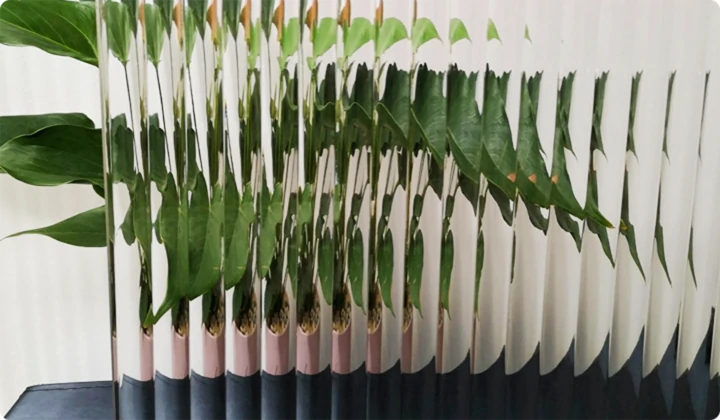The Impact of Tempered Glass on House Prices
In recent years, the use of tempered glass in residential construction has garnered significant attention, not just for its aesthetic appeal but also for its functional advantages. As homeowners and builders alike increasingly prioritize safety, energy efficiency, and modern design, tempered glass has begun to influence house prices across various markets. Understanding the implications of this material's use can provide critical insights for both prospective homebuyers and real estate investors.
The Impact of Tempered Glass on House Prices
From a design perspective, tempered glass offers a sleek and contemporary look that enhances the aesthetic appeal of a property. Large glass windows and sliding doors can create an illusion of spaciousness and allow for abundant natural light to pour into living spaces. This modern design element is highly sought after in today’s real estate market, where open floor plans and connectivity with the outdoors are increasingly favored by buyers. As a result, homes featuring expansive tempered glass installations often command higher prices than their counterparts with standard glass.
tempered glass for house price
Energy efficiency is another significant factor contributing to the rising demand for tempered glass. Many manufacturers now offer insulated tempered glass options, which provide superior thermal performance. These energy-efficient products help maintain comfortable indoor temperatures, reducing heating and cooling costs. In an era where sustainability is paramount, homebuyers are willing to pay a premium for properties that demonstrate a commitment to eco-friendliness. Thus, homes with high-quality tempered glass installations can leverage this trend to achieve better marketability and potentially higher sale prices.
Moreover, the installation of tempered glass can have practical benefits that further enhance a property's value. For instance, in regions prone to extreme weather conditions such as high winds, hurricanes, or heavy snow, tempered glass provides an extra layer of protection. Homeowners in these areas recognizes the long-term benefits of investing in safety features that can withstand harsh conditions. Consequently, such homes not only attract buyers looking for safety but also enjoy a competitive edge in the real estate market, often leading to increased property valuations.
However, it is essential to consider the cost implications of incorporating tempered glass into home designs. While the initial investment can be higher than standard glass, the long-term benefits often justify the expense. Homeowners can expect a return on investment through reduced energy bills, lower maintenance costs, and improved market value. Additionally, properties with modern amenities and safety features tend to remain more desirable, even in fluctuating market conditions.
In conclusion, tempered glass has become an influential factor in shaping house prices today. Its aesthetic allure, safety benefits, and energy efficiency align well with current homeowner preferences, making it a valuable feature during home construction or renovation. As the market continues to evolve, properties incorporating high-quality tempered glass are likely to stand out, attracting discerning buyers and commanding higher prices. In this context, both homeowners and real estate investors should recognize the multifaceted benefits of tempered glass, viewing it as a strategic asset in the competitive housing market.
 Afrikaans
Afrikaans  Albanian
Albanian  Amharic
Amharic  Arabic
Arabic  Armenian
Armenian  Azerbaijani
Azerbaijani  Basque
Basque  Belarusian
Belarusian  Bengali
Bengali  Bosnian
Bosnian  Bulgarian
Bulgarian  Catalan
Catalan  Cebuano
Cebuano  Corsican
Corsican  Croatian
Croatian  Czech
Czech  Danish
Danish  Dutch
Dutch  English
English  Esperanto
Esperanto  Estonian
Estonian  Finnish
Finnish  French
French  Frisian
Frisian  Galician
Galician  Georgian
Georgian  German
German  Greek
Greek  Gujarati
Gujarati  Haitian Creole
Haitian Creole  hausa
hausa  hawaiian
hawaiian  Hebrew
Hebrew  Hindi
Hindi  Miao
Miao  Hungarian
Hungarian  Icelandic
Icelandic  igbo
igbo  Indonesian
Indonesian  irish
irish  Italian
Italian  Japanese
Japanese  Javanese
Javanese  Kannada
Kannada  kazakh
kazakh  Khmer
Khmer  Rwandese
Rwandese  Korean
Korean  Kurdish
Kurdish  Kyrgyz
Kyrgyz  Lao
Lao  Latin
Latin  Latvian
Latvian  Lithuanian
Lithuanian  Luxembourgish
Luxembourgish  Macedonian
Macedonian  Malgashi
Malgashi  Malay
Malay  Malayalam
Malayalam  Maltese
Maltese  Maori
Maori  Marathi
Marathi  Mongolian
Mongolian  Myanmar
Myanmar  Nepali
Nepali  Norwegian
Norwegian  Norwegian
Norwegian  Occitan
Occitan  Pashto
Pashto  Persian
Persian  Polish
Polish  Portuguese
Portuguese  Punjabi
Punjabi  Romanian
Romanian  Russian
Russian  Samoan
Samoan  Scottish Gaelic
Scottish Gaelic  Serbian
Serbian  Sesotho
Sesotho  Shona
Shona  Sindhi
Sindhi  Sinhala
Sinhala  Slovak
Slovak  Slovenian
Slovenian  Somali
Somali  Spanish
Spanish  Sundanese
Sundanese  Swahili
Swahili  Swedish
Swedish  Tagalog
Tagalog  Tajik
Tajik  Tamil
Tamil  Tatar
Tatar  Telugu
Telugu  Thai
Thai  Turkish
Turkish  Turkmen
Turkmen  Ukrainian
Ukrainian  Urdu
Urdu  Uighur
Uighur  Uzbek
Uzbek  Vietnamese
Vietnamese  Welsh
Welsh  Bantu
Bantu  Yiddish
Yiddish  Yoruba
Yoruba  Zulu
Zulu 

